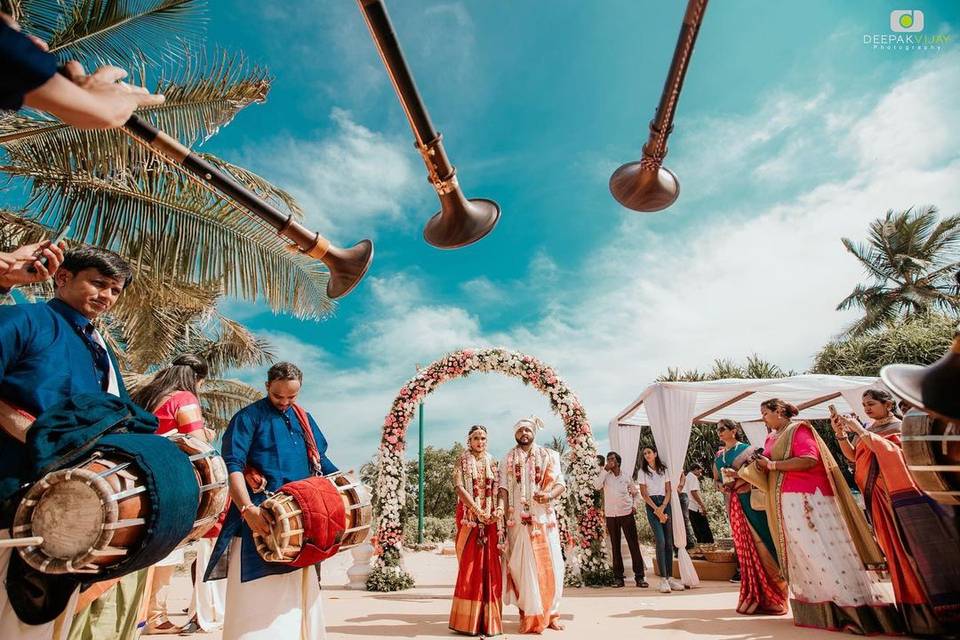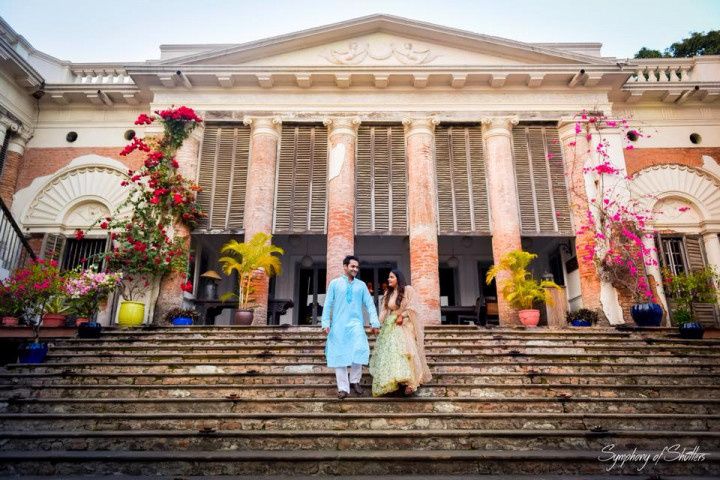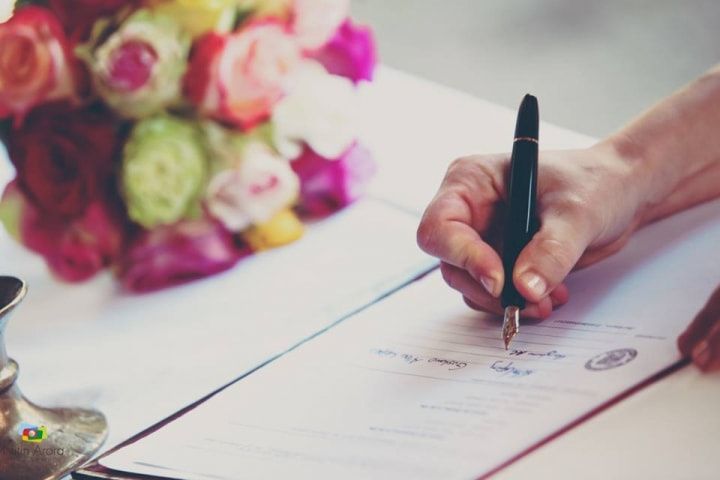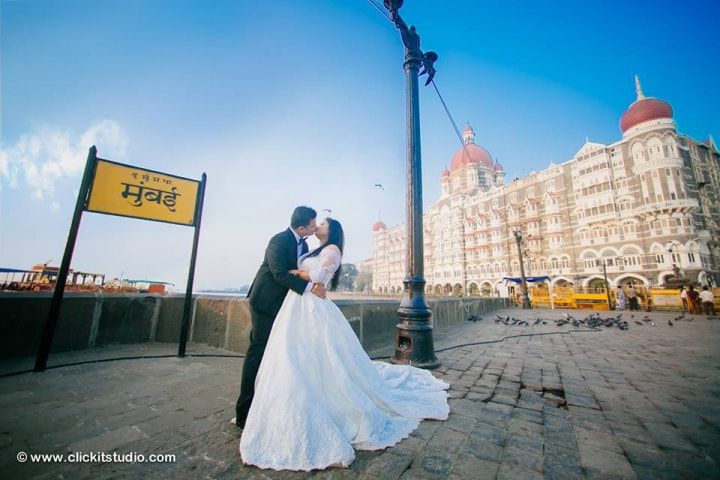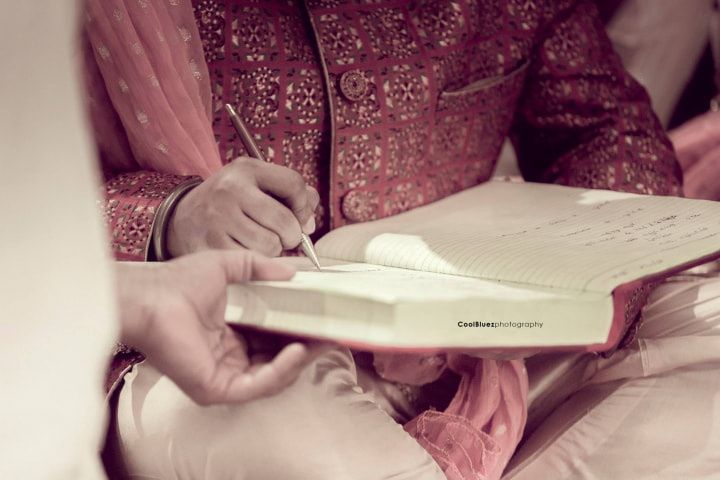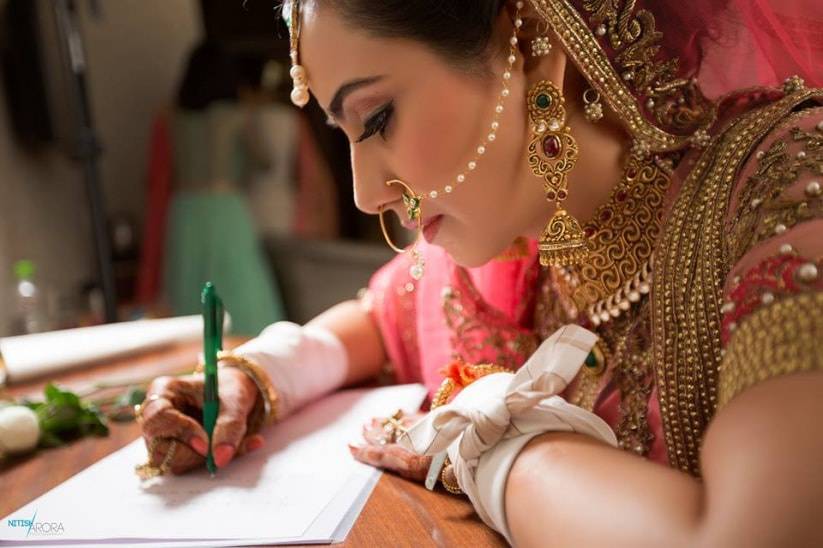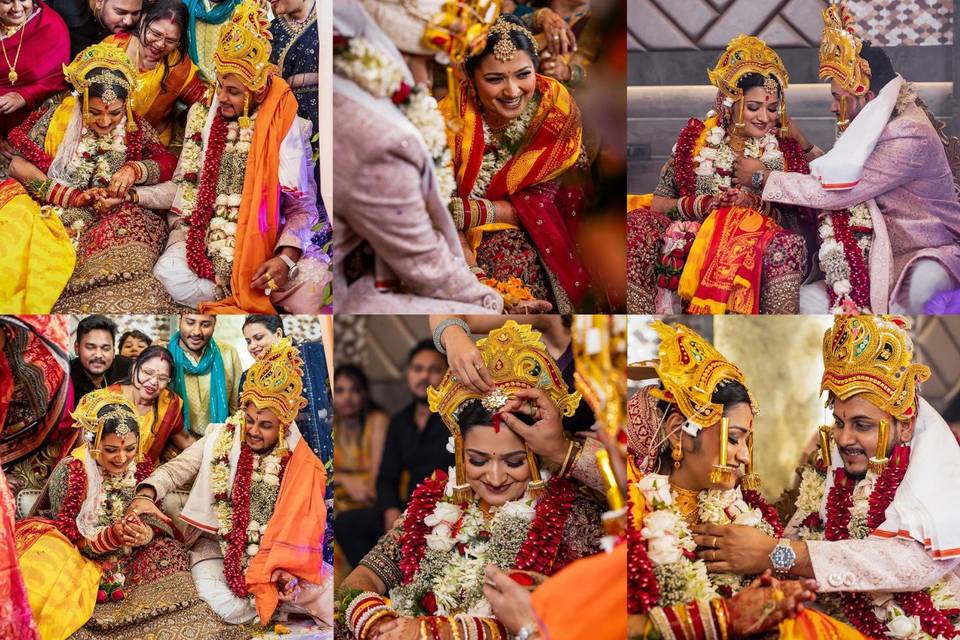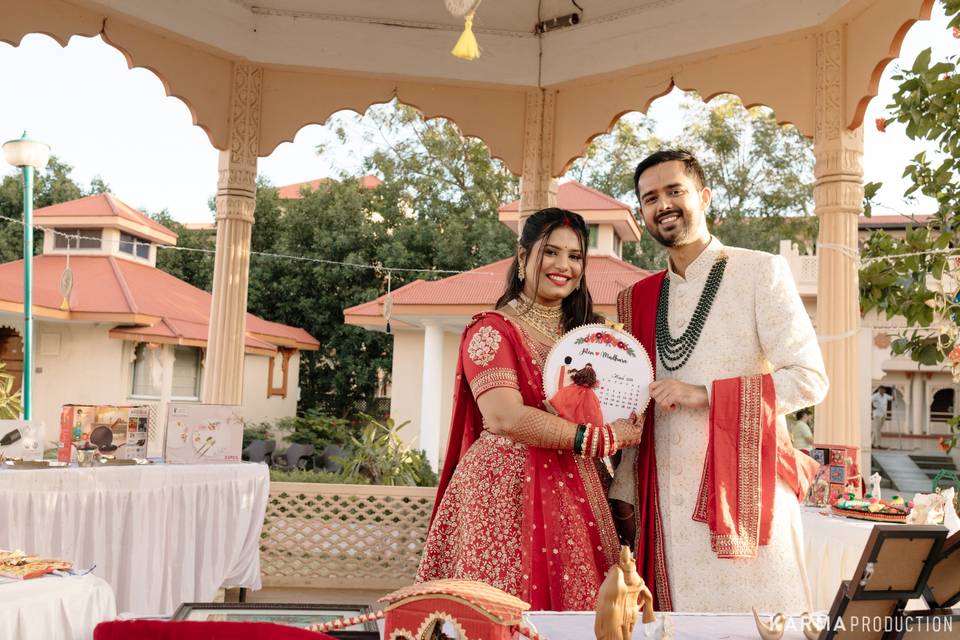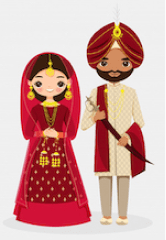The Marriage Registration in India Guide You Need to Bookmark
Marriage registration should be an important task on your wedding to-do list. Here are all the things you should know about registering your marriage in India.

There is no disputing the fact that weddings, especially in India, are a lot of fun. But apart from all the celebrations and fanfare, there are a few things about a wedding that should be taken seriously. One of those things is marriage registration. Not only does this process give legal recognition to the relationship, but it also affords certain securities to both the wife and the husband if things go awry. In case of a divorce, a legally registered marriage makes the process of separation smoother. And if either the husband or the wife dies, a legally registered marriage makes life simpler for the surviving spouse. If one has to claim life insurance upon the death of a partner, the living spouse has to provide a marriage certificate.
Here are five things you need to know about marriage registration in India. So, bookmark this article, read these pointers about marriage registration in India and get going!
1. Benefits of marriage certificate & marriage registration in India
If you want to travel abroad on a spouse visa or apply for a residency to another country, you need to provide a valid marriage certificate. In certain cases, if you want to buy property together and register it under joint ownership, a marriage certificate is one of the mandatory documents. You will also need a marriage certificate if you want to apply for a home loan together.
2. Your religion matters

Your marriage will be registered under the Hindu Marriage Act or the Special Marriage Act, depending on your religion. If both the husband and the wife are Hindu, Sikh, Jain or Buddhist, your marriage will be registered under this Act. However, if one of the parties is Muslim, Christian, Parsi, or Jewish, your marriage will have to be registered under the Special Marriage Act. While registering under any of these Acts won’t really affect your life in the long-term, there are differences in the process of registration for both. This step is a must if you wish to learn about marriage registration in India.
3. Offline marriage registration in India
Under the Hindu Marriage Act, both partners need to apply to the sub-registrar under whose jurisdiction the marriage was solemnised, or to the registrar under whose jurisdiction either spouse has resided for at least six months.
Under the Special Marriage Act, both partners have to give a 30-day notice to the sub-registrar under whose jurisdiction at least one of the partners has resided. The copy of this notice is put on the sub-registrar’s office board for a period of 30 days.
If either of the partners is residing under another sub-registrar’s jurisdiction, a copy of the notice has to be sent to him as well. If there is no objection to the marriage within this period of 30 days, the marriage is then registered.
4. List of documents you need to provide while applying for the marriage registration in India:
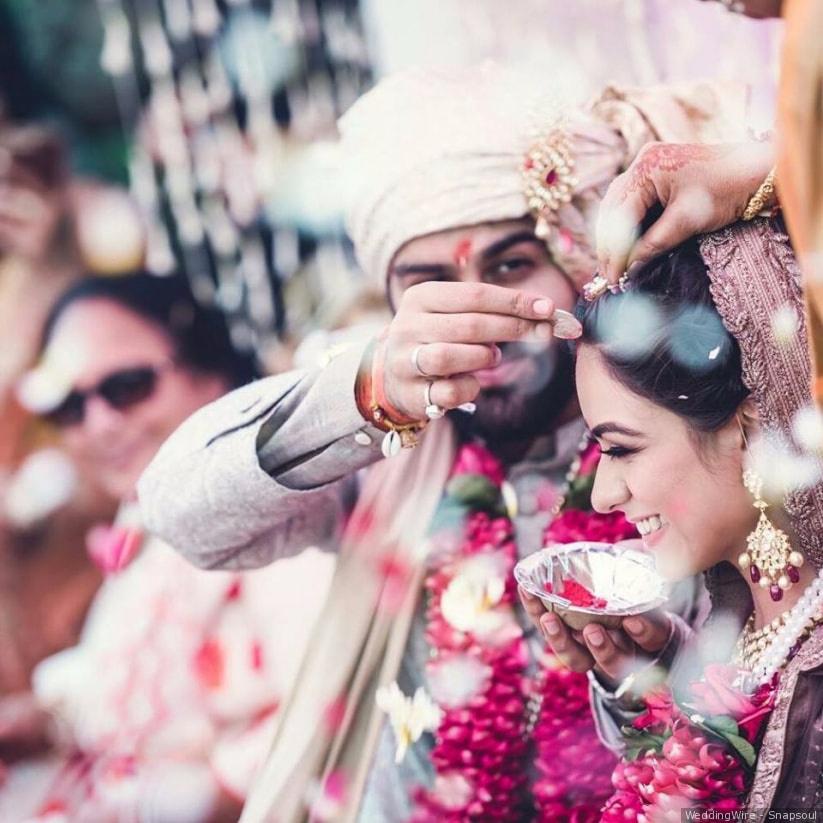
- Application form signed by both the husband and the wife. The forms can be downloaded online for Delhi under Hindu Marriage Act and under the Special Marriage Act.
- Proof of address of both partners such as Aadhar card, passport or driving licence
- Proof of date of birth of both partners such as Aadhar card, passport or driving licence
- An affidavit stating place and date of marriage, marital status at the time of marriage, date of birth of both parties, and nationalities of both parties.
- Passport-sized photographs of both partners and one official wedding photograph of the couple
- Wedding invitation card stating the name of both husband and wife, venue, and date of marriage
- A signed certificate from the priest who solemnised the marriage
- Certificate of conversion, if applicable
- Copy of divorce order, if applicable
- Death certificate of spouse, if either party is a widow or widower.
You need to bring two witnesses at the time of the marriage registration who were present at your wedding.
5. Online marriage registration in India
If you’re worried about the hassle of going to government offices multiple times, don’t worry. You can save time by initiating the process online. If you’re getting your marriage registered in Delhi, you can download the marriage registration form online and for Mumbai, you can follow this link for registration. The Delhi government website lays down the procedure for online marriage registrations for couples of all religions. You will be required to:
- Select your district
- Fill in the spouse’s details
- Fill in the required form online.
After this process, you will be given an appointment for a particular date, which will be approximately 15 days later under the Hindu Marriage Act.
Under the Special Marriage Act, the appointment can be up to 60 days later.
On the day of the appointment, you will be required to present certain documents, which have been mentioned above, and two witnesses who attended your wedding.
6. Even if your marriage isn’t registered, you’re not 'legally single'
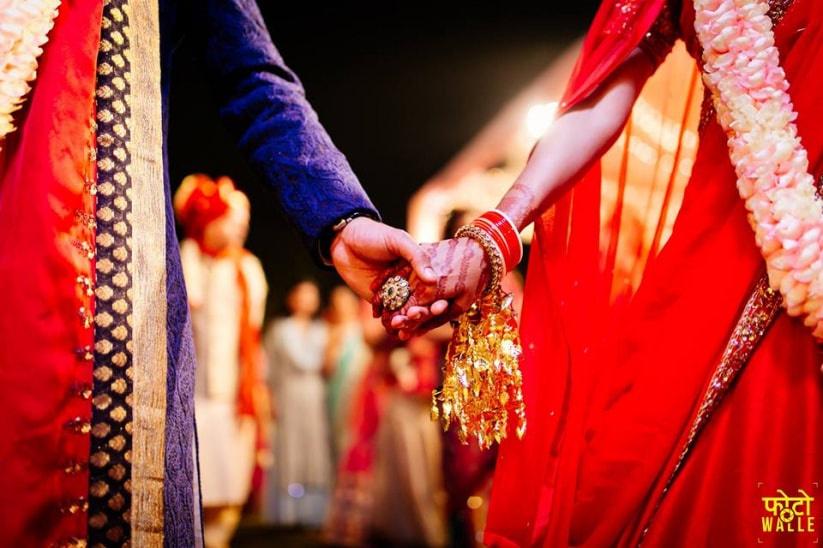
For a marriage to be valid in India, it does not have to be registered. So if the issue of separation arises, you still have to go through the legal divorce proceedings before either party can be considered legally single again. The Indian government, so far, recognises marriages that have only been solemnised under religious rituals but have not been registered with the government. Follow these steps and your process of marriage registration in India will be a smooth ride!
Even though marriage registration is taken lightly in India, it is one of the most important things to be done once the rituals and the parties are over. Not only does it provide security to both partners, but it also makes everything a lot smoother in a country where rules change at the drop of a hat. While it is not compulsory in India yet, the Law Commission has given a recommendation to the government that registration of marriages within 30 days should be made mandatory, with a fine of ₹5 per day after that. So don’t delay your marriage registration in India any further.
Now, that you have a rundown of how to go about marriage registration in India process, waste no time in getting the registration done for the betterment and legality of your marital relationship. If you have any more questions, send us a shoutout and we will resolve it for you!
Did you register your marriage? Tell us through the comments!


